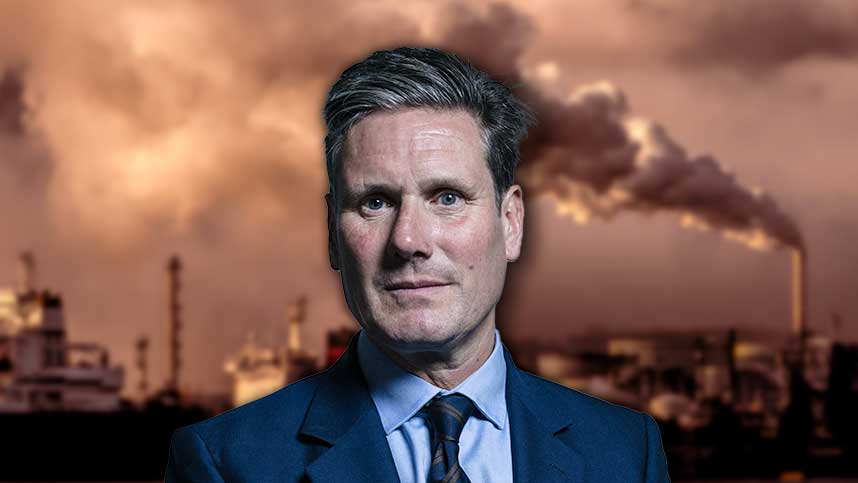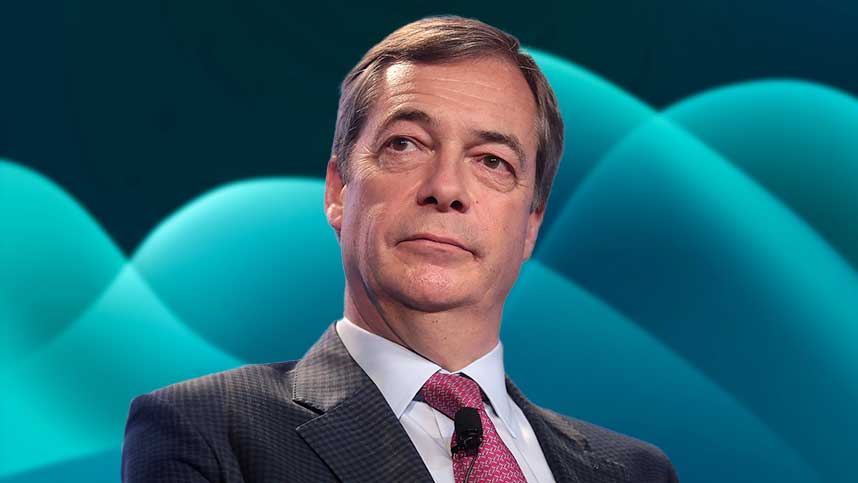
General Election 2024: Major Party Net Zero Policies Compared
As the 2024 General Election approaches, environmental policies have become a focal point.
Voters are keen to understand where the major parties stand on achieving net zero emissions.
But exactly what are different party net zero policies?
This article compares the net zero policies of the leading parties, highlighting their strategies for combating climate change, reducing carbon footprints, and transitioning to sustainable energy sources.
By examining these policies, we aim to provide a clear picture of each party's commitment to environmental sustainability and their plans for a greener future.
Chapters
What is Net Zero?
Net zero refers to the balance between the amount of greenhouse gases produced and the amount removed from the atmosphere.
Achieving net zero means that any emissions released are offset by equivalent amounts of carbon removal, resulting in no net increase in atmospheric greenhouse gases.
This concept is crucial in combating climate change, as it aims to limit global temperature rise by reducing the overall concentration of greenhouse gases.
The path to net zero involves various strategies, including reducing emissions through energy efficiency, transitioning to renewable energy sources like wind and solar, and implementing carbon capture and storage technologies.
Additionally, practices such as reforestation and soil carbon sequestration help absorb carbon dioxide from the atmosphere.
Governments, businesses, and individuals all play a role in achieving net zero.
Policies and regulations at the national and international levels can drive significant changes, encouraging the adoption of cleaner technologies and the reduction of fossil fuel dependency.
Companies can contribute by adopting sustainable practices, investing in green technologies, and committing to net zero targets.
Individuals can reduce their carbon footprints by making eco-friendly choices in their daily lives.
Why is Net Zero Important?
Net zero is crucial in the fight against climate change, aiming to balance greenhouse gas emissions with their removal from the atmosphere.
Achieving net zero helps mitigate severe climate impacts, such as extreme weather events, rising sea levels, and loss of biodiversity.
The importance of net zero extends beyond environmental benefits.
Economically, transitioning to a low-carbon economy can stimulate innovation, create jobs, and promote energy security by reducing dependence on fossil fuels.
It also reduces the financial risks associated with climate change, such as damage to infrastructure and increased healthcare costs due to pollution-related illnesses.
Socially, net zero initiatives can lead to healthier communities by improving air and water quality.
They also ensure a more equitable distribution of resources and opportunities, particularly for vulnerable populations disproportionately affected by climate change.
Attitudes Towards Green Policies & Net Zero
Conservatives
- Prime Minister Rishi Sunak announced a “more pragmatic, proportionate, and realistic approach” to net zero.
- The announcement included a significant U-turn on the Minimum Energy Efficiency Standards (MEES) requiring all rented properties to have an Energy Performance Certificate rating of C or above by 2028.
- The Prime Minister cited financial burdens on landlords and the need to balance environmental goals with economic realities as reasons for the change.
- Sunak has emphasised putting energy security and family finances ahead of "unaffordable eco-zealotry."
- The Conservative Party's manifesto reiterates the commitment to net zero by 2050, stressing a pragmatic approach to allow families time to adapt and avoid forced boiler replacements with heat pumps.
Labour
- Labour plans to make the UK a clean energy superpower, with cheap and secure energy.
- The Labour manifesto aims to reduce energy bills, create jobs, and grow the economy from the bottom up.
- Labour's Green Prosperity Plan is a plan for Britain to lead the world in cheaper, cleaner power and industry.
- Key goals include cutting household energy bills by up to £1,400, creating hundreds of thousands of jobs, and enhancing energy security.
- Labour will establish GB Energy, set up the National Wealth Fund, and upgrade homes with the Warm Homes Plan, with a goal to deliver lasting benefits.
Liberal Democrats
- The Liberal Democrats have a plan to launch a ten-year program to make homes warmer and cheaper, starting with free insulation and heat pumps for low-income households.
- They plan to expand incentives for rooftop solar panels, and ensure a fair price for electricity sold back to the grid.
- The Liberal Democrats manifesto talks about a plan to invest in renewable energy to generate 90% of the UK’s electricity from renewables by 2030.
- Appoint a Chief Secretary for Sustainability and establish a Net Zero Delivery Authority, giving more power and resources to local councils.
- Restore the UK’s global climate leadership by returning international development spending to 0.7% of national income, focusing on climate change.
SNP
- The SNP aims to reduce emissions and limit global warming to well below 2°C above pre-industrial levels.
- Scotland has set legally-binding targets to reduce all major greenhouse gas emissions and are aiming for net zero by 2045.
- Scotland's climate legislation emphasises a just transition to net zero, focusing on fair emission reductions and ensuring no community is left behind.
- The SNP’s climate plans prioritise supporting the most affected and least equipped to adapt to climate change in developing countries.
- The SNP aims to invest heavily in restoring Scotland’s forest, peatland and wildlife.
Green
- The Green party advocates for transitioning to a zero-carbon society more than a decade before the 2050 target, aiming for the earliest possible date.
- They plan to ensure a zero-carbon electricity supply and provide sufficient electricity for electric vehicles, homes, buildings, and most industries.
- Promote the complete transition of homes and buildings away from fossil fuels to clean energy sources.
- Implement measures to reduce the environmental impact of construction activities.
- Encourage the development and use of community-owned energy sources to promote local energy independence and sustainability.
Reform UK
- Reform UK proposes scrapping net zero policies, arguing they cripple the economy and could save £30bn annually for 25 years.
- They prioritise clean nuclear energy over fossil fuels, advocating a fast-track approach.
- The plan emphasises tree planting, increased recycling, and banning single-use plastics as environmental protection measures.
- Reform UK aims to redirect climate change efforts towards practical, cost-effective solutions.
- Their strategy aims to balance environmental goals with economic priorities.
Fossil Fuels
Conservatives
- Conservatives plan to build new gas power stations to support renewable energy.
- They intend to continue investment allowances for the oil and gas sector if re-elected.
- Legislation would ensure annual licensing rounds for North Sea oil and gas production, with a moratorium on fracking remaining in place.
Labour
- Labour pledges to halt new licences for oil and gas exploration and permanently prohibit fracking.
- Recognizing the current role of oil and gas, Labour plans a phased transition in the North Sea to support workers.
- Labour aims to close loopholes in the windfall tax on oil and gas firms, maintain the energy security investment mechanism, and ensure a strategic reserve of gas power stations for supply security.
Liberal Democrats
- The Liberal Democrats plan to ban fracking.
- They aim to ensure a 'just transition' for oil and gas workers and support affected UK regions.
- They propose a one-off windfall tax on the super-profits of oil and gas producers and traders.
SNP
- The SNP position themselves between Labour and the Conservatives on the future of oil and gas.
- They plan to outlaw new coal licences.
- They advocate for a slower, smooth transition away from oil and gas that protects jobs.
Green
- The Green Party manifesto mentions plans to ban all new oil and gas licences.
- They aim to end all subsidies to the oil and gas industries.
- They prioritise transitioning away from fossil fuels to sustainable energy sources.
Reform UK
- Reform Party plans to fast-track licences for North Sea gas and oil.
- They propose granting shale gas licences on test sites for two years.
- Major production will be enabled when safety is proven, with local compensation schemes.
Transport & EVs
Conservatives
- They plan to reverse the London Ultra Low Emission Zone (ULEZ) and impose restrictions on 20mph speed limits.
- The party opposes a pay-per-mile road tax model.
- The Conservatives have remained mostly silent on the topic of electric vehicles (EVs).
Labour
- Labour has pledged to reinstate the petrol and diesel ban to 2030 if elected.
- They plan to support the transition to EVs by accelerating the rollout of new charge points across Britain.
- Their manifesto includes a pledge to aid buyers of used EVs by creating a standardised system for assessing the condition of a car’s battery.
Liberal Democrats
- The Liberal Democrats aim to increase the transition to electric vehicles by adding more charge points for on-street parking and at petrol stations.
- They plan to cut VAT on public charging to 5%.
- They will investigate rising fuel prices and reinstate the 2030 ban on the sale of new petrol and diesel cars.
SNP
- The SNP manifesto pledges to remove VAT from on-street electric vehicle charging.
- They will press the next Westminster government to strengthen incentives for purchasing cleaner vehicles.
- They propose a low-income EV leasing fund to enable thousands of EV and battery leases annually, benefiting low-income families.
Green
- The Green party aims to ban new ICE vehicle sales by 2027 and all petrol and diesel vehicles by 2035, replacing them with electric vehicles.
- They plan to implement a scrappage scheme by the end of the next parliamentary term to encourage switching from ICE to EVs.
- The party supports introducing road pricing to compensate for declining fuel duty revenue as EV adoption increases.
Reform UK
- The Reform Party opposes the planned 2035 ban on petrol and diesel cars and the ZEV mandate for car makers.
- They pledge to legislate against all ultra-low emissions zones in city centres.
- Their stance contrasts with most other parties, prioritising the removal of EV mandates and emission restrictions.
Wind & Solar
Conservatives
- The Conservative Party aims to triple offshore wind capacity and ensure community approval for onshore wind projects.
- They pledge contract payments to incentivize offshore wind firms to invest in manufacturing in disadvantaged UK areas.
- They support strategic solar power initiatives in suitable locations.
Labour
- Labour plans to establish a National Wealth Fund to bolster investments in clean energy initiatives.
- They intend to collaborate with the private sector to increase onshore wind capacity twofold, solar power threefold, and offshore wind fourfold by 2030.
- The party aims to accelerate the transition to renewable energy through these ambitious targets and financial strategies.
Liberal Democrats
- The Liberal Democrats propose lifting constraints on new solar and wind power installations.
- They advocate for increased support and innovation in tidal and wave energy sectors.
- The party aims to expand incentives for residential solar panel installations, ensuring fair prices for electricity fed back into the grid.
SNP
- Scottish Government funding secured an investment for a new cable factory supporting Scotland's offshore wind sector.
- The new factory aims to boost Scotland’s offshore wind capabilities.
- The SNP has not addressed solar energy in their manifesto.
Green
- The Green party aims for wind power to supply about 70% of the UK's electricity by 2030.
- They propose new support for solar, marine, hydro-power, and geothermal to cover the remaining energy needs by 2030.
- The plan includes incentives like installation grants, green mortgages, and reduced VAT to boost solar and other renewable energy sources.
Reform UK
- Reform argues that wind and solar power have compromised energy security.
- The Reform manifesto claims renewables are more expensive than other power sources.
- They attribute rising energy bills to the increased capacity of renewable energy.
Nuclear
Conservatives
- The Conservative Party pledges to fast-track next-generation nuclear power.
- They plan to approve two new fleets of Small Modular Reactors within the first 100 days of the next Parliament to expand nuclear power.
- They aim to halve the approval time for new nuclear reactors and deliver a new gigawatt power plant.
Labour
- Labour aims to ensure long-term security for the nuclear power sector by extending the lifetime of existing plants.
- They plan to build new nuclear power stations and Small Modular Reactors.
- They believe efforts will help achieve UK energy security, clean power, and secure thousands of skilled jobs.
Liberal Democrats
- The Liberal Democrats have not explicitly stated their nuclear policy.
- However, their strong push for renewable energy like wind and solar suggests a preference against nuclear power.
SNP
- The party urges Westminster to completely rule out new nuclear power plants in Scotland.
- They firmly oppose any new nuclear power developments in Scotland, they have not commented on the policy of nuclear plans around the rest of the UK however.
Green
- The Green Party advocates for phasing out nuclear energy, citing safety concerns and high costs compared to renewables.
- They argue that nuclear power development is too slow to meet urgent climate action needs and produces unmanageable radioactive waste.
- The party also highlights the link between nuclear power and nuclear weapons production as a major concern.
Reform UK
- Reform UK aims to fast-track the development of "clean" nuclear power.
- They plan to implement new Small Modular Reactors.
- This initiative is part of their broader energy strategy, also involving coal and tidal power.
Hydrogen/Carbon Capture & Storage (CCS)
Conservatives
- The Conservatives plan to build the two carbon capture and storage clusters and create jobs from this.
- They also aim to progress the second tranche of carbon capture projects in Aberdeenshire and the Humber.
- This initiative is part of their broader strategy to reduce carbon emissions and stimulate regional job growth.
Labour
- Labour plans to invest in hydrogen and carbon capture and storage (CCS) technologies to ensure long-term energy storage for the UK.
- They will introduce a new Energy Independence Act to establish the framework for their energy and climate policies.
- These initiatives aim to enhance energy security and support the transition to a low-carbon economy.
Liberal Democrats
- Liberal Democrats plan to invest in energy storage solutions, including green hydrogen.
- They aim to reduce emissions from industrial processes by supporting carbon capture and storage.
- They will promote new low-carbon processes for cement and steel production.
SNP
- The SNP advocates for hydrogen and carbon capture to achieve energy security and combat climate change.
- They emphasise the need for green hydrogen, produced using renewable electricity, to be scaled up for Scotland's energy needs.
- They believe green hydrogen is the only credible solution for decarbonizing key strategic industries.
Green
- The Green Party plans to address the climate and environmental crisis by investing in research on energy storage and carbon-capture technology.
- They emphasise the importance of developing innovative solutions for sustainable energy management.
- They have not provided a stance on the use of hydrogen.
Reform UK
- Reform UK has not released an official stance on hydrogen or carbon capture and storage.
- Their positions on oil, gas, nuclear power, and net zero policies suggest a lack of support for these technologies.
Conclusion
As the 2024 General Election approaches, the major parties' net zero policies present a range of approaches to tackling climate change and achieving sustainable energy goals.
The Conservative Party emphasises a pragmatic balance between environmental goals and economic realities, promoting nuclear energy and renewable sources like wind and solar.
Labour focuses on extensive clean energy investment, aiming to transform the UK into a leader in renewable power while ensuring job creation and energy security.
The Liberal Democrats advocate for ambitious renewable energy targets and incentives, while the SNP prioritises a just transition and significant investments in wind energy.
Meanwhile, the Reform UK party is focused on a more short term strategy for cheaper fossil fuels.
Most of the party's commitment to net zero highlights the critical role of policy in addressing climate change and fostering a greener future.
Blog Archive
- Vehicle to Load (V2L): What It Is & How It Works
- 16 Top Charge Point Operators in the UK
- 8 Types of EV Battery Explained
- Where Can I Charge My Electric Car?
- Electric Car Maintenance and Servicing Guide
- How Often Should I Charge My Electric Car?
- How to Check EV Battery Health
- Do Electric Cars Pay Road Tax?
- October 2024 Budget: Key EV News
- EV vs ICE – Which is Best?
- Should I Charge My EV to 80 or 90 or 100%?
- UK Government Announces Hybrid Sales Allowed Until 2035
- BEV vs PHEV – What’s the Difference?
- Definitely Not A Guru (Jim Starling) Reviews Joosup
- How Long Do Electric Car Batteries Last?
- 25 New Electric Car Brands on UK Roads
- General Election 2024: Major Party Net Zero Policies Compared
- Electric Car Service Costs vs ICE
- CHAdeMO vs CCS – What’s the Difference?
- Mr EV Reviews Joosup









